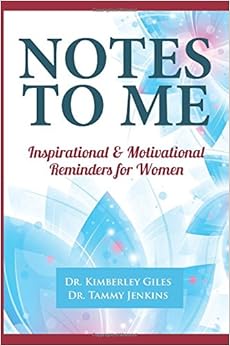Back in 1987...
My reflections for this post brings me back to 1987, the year I graduated from High School. Deer Park High School, Deer Park, NY (Long Island). Here's my yearbook page:

The page - like Deer Park High School - represents the racial make-up in my high school. Majority White American , 20-25% Black American, and about 5% other nationalities. I share this HS snapshot because it helps tell the story of where I've been, what I've done, and who I am know. I was always pretty friendly and had no trouble fitting in with any group I chose to be with. Although in the cafeteria, I mostly sat at the "black table". In HS, I made a point of joining almost every club and activity the school sponsored. I remember clearly joining the Yearbook Club, not because I wanted to be journalist or photographer, but because I said to myself - if no Black people join the yearbook club, we won't get our stories told or our pictures in the yearbook. I joined the Prom committee because I thought, if we want to have a say in song selection, at least one of us will have to be on the committee. I made sure my grade average was high enough for the Honors track because I needed everyone to know that Black students were just as smart as everyone else. I was on Student Council because I wanted to...well you get the picture.
Fast forward to college, Howard University(HU) - an HBCU - Historically Black College or University. For 4 years I didn't have to worry about "my story" being told. For four years I had the privilege of joining clubs and organizations that I was interested in. I didn't have the need or internal pressure to be a part of something to be noticed, I just went along and did things that I enjoyed. I didn't have to sit at the black table but rather sat with people based simply on common interests.
Post college: Earned my Masters in Instructional Technology at New York Institute of Technology. I missed my HU but I really didn't care that there were only a few Black students in my classes (like in high school) because the main goal was to earn my degree, not make friends. Plus I attended every night class with bff, Michele. We worked together during the day in a predominately Black elementary school and attended school at night in a totally different world.

Are you starting to get a sharper picture of my world view? If not, let me continue. Post grad work let me to a doctoral program at Hofstra University. Similar to NYIT with the make-up of doctoral students, the professors I engaged with at Hofstra had a very clear vision of Social Justice and understood their role was to help develop a new generation of leaders that worked to address inequities, enhance teacher performance and maximize student learning. Although many times I was the only Black female student in class, my voice was never silenced and the perspectives I was able to offer based on my personal and professional experiences were valued.
But I live on Long Island, one of the most segregated communities in the U.S. (for real - google it). So every day I am living in world in which I negotiate who I am all day long. I live in a mixed, mostly African American "wealthy" community, my sons attend public school in a mixed, majority White middle income school district, and I am a school admin in a lower-income community of Caribbean, African, Black American and Latino students. I am part of way to many community organizations because I still feel the need to have my story/voice heard.
Is it my choice or my responsibility? Maybe it's a little easier for me to find my voice no matter where I am because I've been doing it for so long. But what about others who don't participate in organizations, or join committees, or social media chats, or get involved with people who do not look like them? Have they tried but did not feel welcomed? Do they feel connected? Do they think that one voice won't matter? Is it because of a bad experience or the lack of shared experiences? Or is just easier to stay in your comfort zone?
How do we encourage more critical and courageous conversations regarding social justice issues that affect our communities, children and our future if we are unable to sit at the same table together.
If you are already at the table making decisions and the table is at a restaurant you or your best friend owns, or if you or your parents are already on the school/community board, or if you are expected to be in grad school, you may not realize that it's not easy if you are on the outside. It's deliberate work, it's intentional, and it's time consuming to alway have to be the one to join something in order to have his/her voice heard. Maybe if the door was open a little wider with the "come on in we have been expecting you" sign it would be easier. But if the door, which has been traditionally closed for certain groups of people, remain closed, with no welcome sign, you might not get new people to knock (unless they are like me).
But by the way, feel free to come to my school, stop by my table, knock on my door, or eat at the restaurant my friend owns. There's also a house for sale in my neighborhood if you really want to get to know me. There's no place like home.









